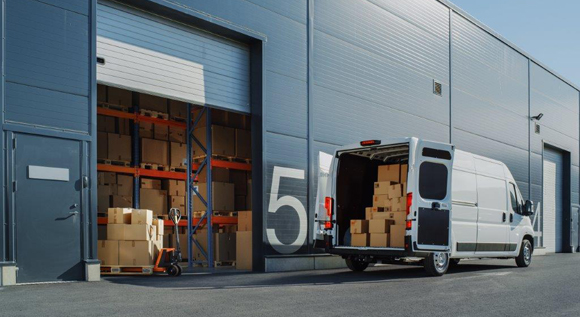 © Adobe Stock / Gorodenkoff
© Adobe Stock / Gorodenkoff
Using lightweight design to make environmentally friendly delivery vans
The number of small delivery vans weighing less than 3.5 tonnes is set to grow. They are being used to transport food items, books and many other goods – an increasing number of which are being ordered online. Cross-sector e-commerce also means more packages and thus increases the need for environmentally-friendly delivery vehicles to deliver packages to the customer’s doorstep (last mile delivery). This makes small delivery vans the most important means of transport, particularly in inner cities.
Great demand for battery-powered delivery vans.
Most delivery vans currently run on combustion engines. However, as the transport sector is being further decarbonised and zero-emission zones established in cities, more battery-electric vans are needed. The electrification of the transport sector can make a considerable contribution to climate action and emission reduction.
In order to reduce the weight of battery-electric delivery vans whilst increasing payload and range and reducing costs, innovative lightweighting technology is being used. Under the ULAS-E-VAN project (ultra-light design structure for light electric commercial vehicles), researchers at Ford-Werke GmbH are working with seven other partners from the industrial sector and research to develop solutions based on lightweight design that will reduce the weight of battery-electric small delivery vans and thus increase the vans’ range.
Taking inspiration from innovative aviation design methods.
Copying innovative design methods from aviation to commercial vehicle construction, the researchers have integrated the battery tray and outer shell as load-bearing elements in the vehicle chassis. This reduces the overall weight of the lightweight structures and the cost involved in the development and production of small commercial vehicles.
The Federal Ministry for Economic Affairs and Climate Action has been providing funding for innovative lightweighting projects since 2020 under its Technology Transfer Programme for Lightweighting. The programme’s funds have been topped up so that in 2023, a total of €109 million can be spent. The ULAS-E-VAN project will continue until November 2024 and will receive around €3.2 million in funding. On top of that, approximately €2.6 million in equity funds will be invested by the industrial partners themselves.